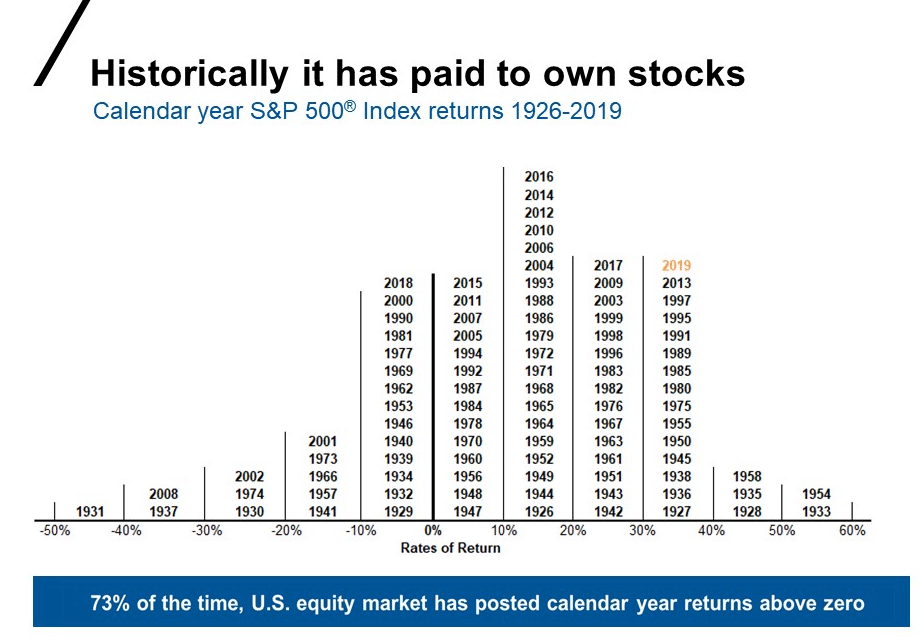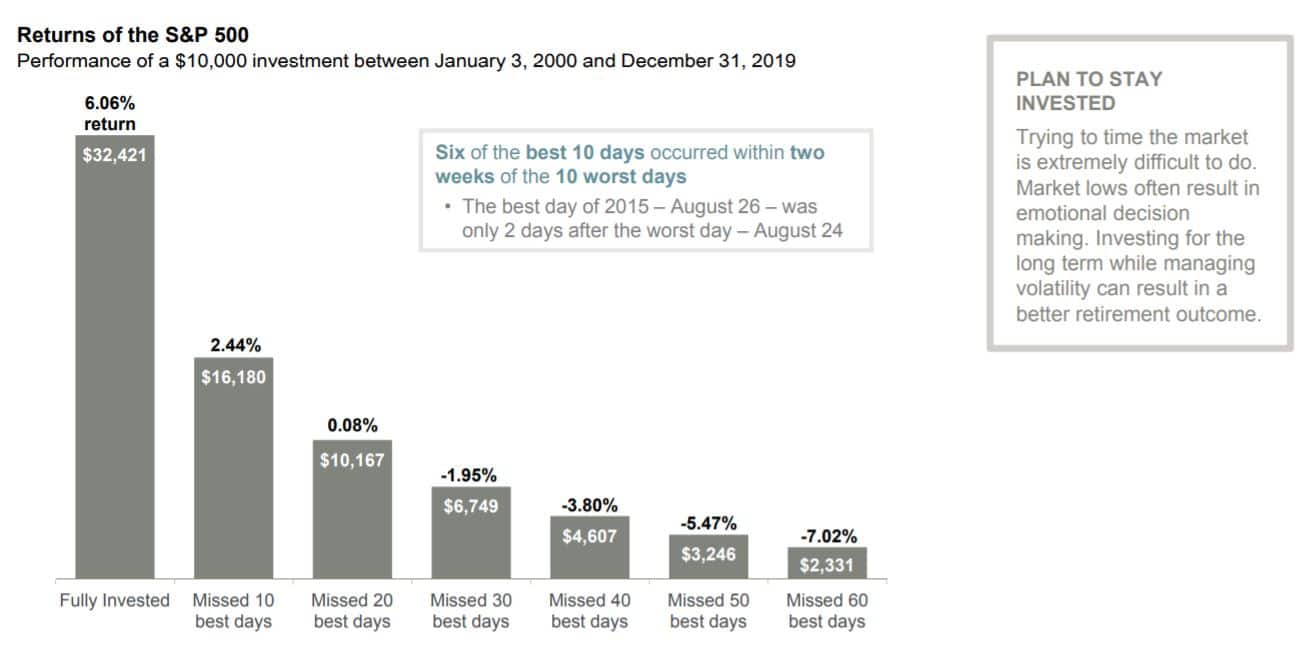Am I too conservative for Investing? The market has been somewhat volatile this year and some of my clients have expressed fear that the markets are “too high” and they should get out until this is over.
My question to them is—how do you know when it’s over?
It’s very tempting to want to play around with our investments. We are prone to emotions and it feels uncomfortable when our investments go down or when they MIGHT go down.
We can soothe ourselves during emotional times with some historical data. Granted, past performance is no guarantee of future results. The markets have proven that no matter what they throw at us, there are always new ways of freaking us out.
However, I want to point out two things to you in this blog.
- *Shows what happens if you miss the 10 best days of the market over a 20-year period. 20 Years. You may want to get out when the market is down, but often the best up market day is preceded shortly by a big down day.

- If you were invested in the S&P 500 Index for the this entire 20-year period (1998-2017), you would have made a 7.5% average annual return. But if you missed only 10 of the best days during this 20-year period, then your return would be cut in half. The catch is that nobody knows when the best days are going to be. So, if you are thinking, I’m just going to go to cash for a little bit, watch, and then get back in, not only do you have to make two correct decisions (when to get out and when to get back in), you may also significantly reduce your return. A better alternative might be to rebalance your portfolio to be get more conservative/less risky or more diversified. Talk to your financial advisor about this.
2. Stocks have shown positive returns for the majority of the market’s history. It’s just that when they aren’t performing well, it’s big news, like when there is a plane crash. This next chart** shows stock market returns as a bell curve, and you can see that it is pretty rare for stocks to end the year with below a -10% return. Before you make any changes to your investments, like go to cash, it’s always a great idea to run it by a professional. Let an advisor keep you from acting on emotions, and direct you towards trends and industry experience. Feel free to hit me up if you have any questions.
Before you make any changes to your investments, like go to cash, it’s always a great idea to run it by a professional. Let an advisor keep you from acting on emotions, and direct you towards trends and industry experience. Feel free to hit me up if you have any questions.
-
-
*Represented by the S&P 500 Index from 1926-2019. Index returns represent past performance, are not a guarantee of future performance, and are not indicative of any specific investment. Indexes are unmanaged and cannot be invested in directly.
**Source – JJ.P. Morgan Asset Management analysis using data from Bloomberg. Returns are based on the S&P 500 Total Return Index, an unmanaged, capitalization-weighted index that measures the performance of 500 large capitalization domestic stocks representing all major industries. Indices do no include fees or operating expenses and are not available for actual investment. The hypothetical performance calculations are shown for illustrative purposes only and are not means to be representative of actual results while investing over the time periods shown. The hypothetical performance calculations for the respective strategies are shown gross of fees. If fees were included returns would be lower. Hypothetical performance returns reflect the reinvestment of all dividends. The hypothetical performance results have certain inherent limitations. Unlike actual performance records, they do not reflect actual trading, liquidity constraints, fees and other costs. Also, since the trades have not actually been executed, the results may have under- or overcompensated for the impact of certain market factors such as lack of liquidity. Simulated trading programs in general are also subject to the fact that they are designed with the benefit of hindsight. Returns will fluctuate and an investment upon redemption may be worth more or less than its original value. Past performance is not indicative of future returns. An individual cannot invest directly in an index. Data as of 12/29/17.
Investment advisory services are offered through Stephens Wealth Management Group, (SWMG) an investment adviser registered with the Securities and Exchange Commission. SWMG is neither a law firm nor a certified public accounting firm and no portion of this article should be construed as legal or accounting advice. Past performance may not be indicative of future results. This information has been obtained from sources considered to be reliable, but we do not guarantee that the foregoing material is accurate or complete. SWMG, 5206 Gateway Centre, Suite 300 Flint, MI 48507 Ph: 810.732.7411.
-
-
